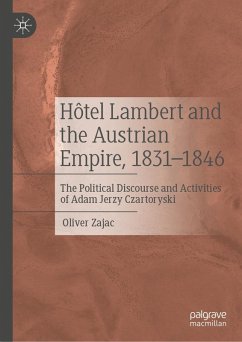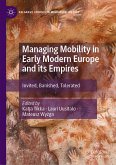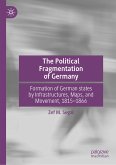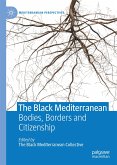This book analyses the political discourse and activities of the constitutionalist-monarchist wing of the Polish Great Emigration, which saw the emigration of several thousand people from the territory of the former Polish-Lithuanian Commonwealth from 1831 to 1864, after the failure of the November Uprising of 1830-1831. The book examines the political faction of émigrés led by Prince Adam Jerzy Czartoryski, which came to be known as 'Hôtel Lambert'. By analysing the theoretical discourse in the milieu of the Czartoryski faction and, at the same time, by analysing the plans and efforts to put their theoretical stands into practical policy, the book seeks to answer the question of how the leading representatives of the constitutionalist-monarchist wing of the Great Emigration perceived the Austrian Empire and how their ideas about the past, the present, and the assumption of the future of not only the Polish state but also of the whole of Europe, were projected into their ideas and plans concerning the Austrian Empire. Therefore, the author offers not only conclusions concerning the Austrian Empire from the specific Polish point of view but also interesting perspectives about the projected future of the European continent. Thus, its broad scope provides insights for those researching nineteenth-century European politics, diplomacy, and political thought, particularly regarding phenomena such as nationalism, federalism, democracy, constitutionalism, and perpetual peace theory, among others.
Oliver Zajac is a Researcher at the Institute of History of the Slovak Academy of Sciences, Slovakia. Previously, he was a Postdoctoral Researcher at the German Historical Institute in Warsaw, Poland.
Dieser Download kann aus rechtlichen Gründen nur mit Rechnungsadresse in A, B, BG, CY, CZ, D, DK, EW, E, FIN, F, GR, HR, H, IRL, I, LT, L, LR, M, NL, PL, P, R, S, SLO, SK ausgeliefert werden.









